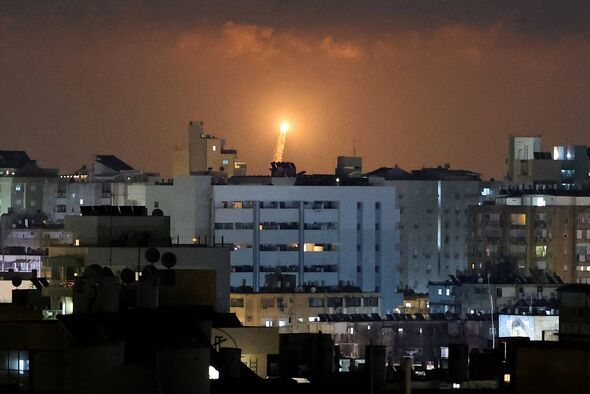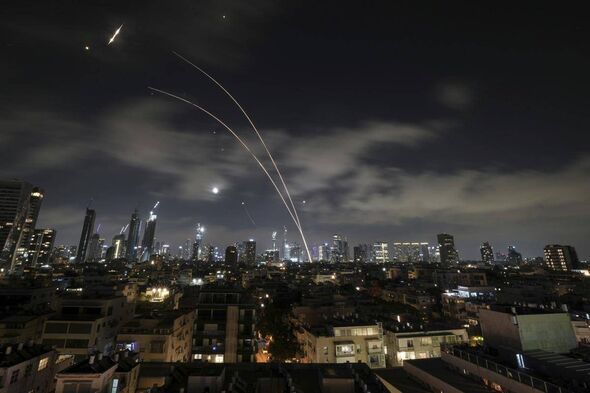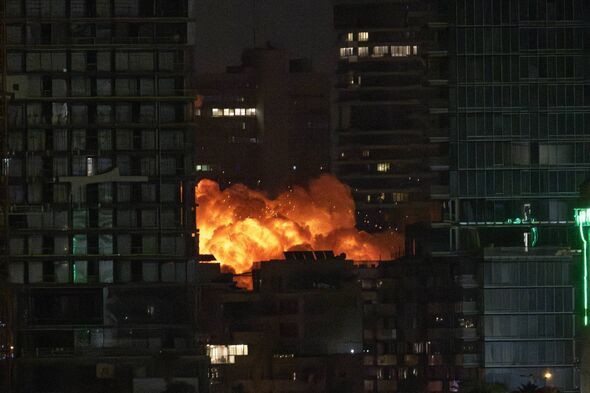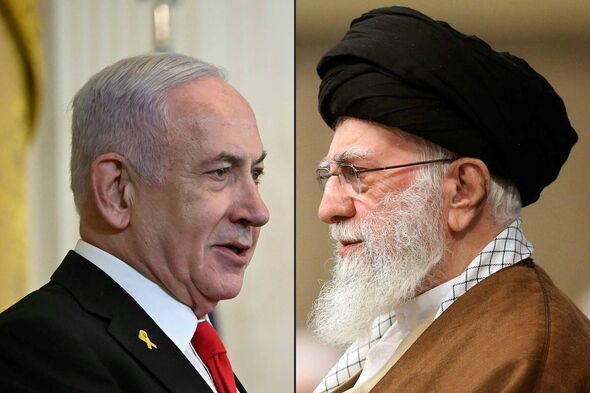

The world holds its breath as the US contemplates joining Israel's strikes on Iran, with the Supreme Leader narrowly avoiding the attacks. Amidst this tension, Trump has called for Iran's "immediate surrender" and hinted at a potential plot to take out Iran's revered leader.
But the question on everyone's lips is why the US is so entangled in Israel's disputes?
The Express sheds light on this complex issue, providing answers to five crucial questions about the escalating conflict between Israel and Iran, its roots, and the potential repercussions for the global community. Here's the essential information:
Q: What sparked the missile exchange between Israel and Iran?
A: Ever since the 1979 Iran Revolution, there's been friction, with the current Iranian regime denying Israel's right to exist and even advocating for its annihilation,

Iran has been backing groups like Hamas in Gaza, Hezbollah in Lebanon, and the Houthis in Yemen, arming and training them to confront Israel indirectly. Meanwhile, Israel accuses Iran of striving to develop nuclear weapons.
The situation intensified when Israeli PM Netanyahu warned that Iran's nuclear capability was becoming an immediate threat, possibly within months. He seized the chance to target Iran's nuclear sites, especially with weakened and the Houthis suffering from Israeli assaults.
This military engagement has also conveniently shifted focus away from Israel's conflict in Gaza.

Q: How does the rest of the Middle East view this situation?
A: While Iran may publicly criticise Israel, it has limited allies in the Middle East. This is largely due to its Shia theocracy, which creates a natural divide with the predominantly Sunni Middle East, and its aggressive expansionist ambitions.
Previously, Syria was its main ally until the recent overthrow of the Bashar al-Assad regime. Saudi Arabia has been on the brink of war with Iran for years.
Its primary allies now are the authoritarian trio of Russia, China, and North Korea, along with the Houthis in Yemen.
Q: Why would the US support Israel in a conflict with Iran?
A: The US has traditionally been Israel's staunchest supporter since 1948, providing military, political, and diplomatic backing. This support stems from the post-WWII desire for a Jewish homeland following the Holocaust.
Furthermore, Israel provides the US with a significant foothold in the Middle East, aiding America's long-term strategy to manage regional tensions.
The US-Israel relationship proved particularly beneficial during the Cold War. Additionally, Israel's dominance and effectiveness in intelligence have been invaluable to the US.

Q: Are we on the brink of World War Three?
A: Hopefully not, but some argue that WWIII has already begun with the hybrid warfare that Iran, North Korea, and China are waging against the West. Cyber warfare and espionage are becoming increasingly aggressive.
This is beneath the level of full-scale war, but Iran has previously attempted to assassinate individuals in the UK, particularly dissident diaspora, and Russia has done so on several occasions.

Missile launches and open conflict between two nations with allies like Iran and Israel can escalate into war as other parties are drawn into their violence - a scenario we're currently witnessing with the US arming the Middle East.
A single incorrect calculation or called bluff could trigger a significant explosion, making de-escalation challenging.

Q: What will happen next?
A: Predicting the exact outcome is nearly impossible, but it's likely that the US will join the war against Iran's nuclear programme, prompting Russia, China, and North Korea to deeply consider how much support they should provide Tehran.
Israel's assessment is that a nuclear-armed Tehran would pose a threat to its very existence, hence the risk of a broader war is deemed acceptable.
The US may believe, perhaps correctly, that China, in particular, will act sensibly and back down as this isn't the right time to engage in war with the US. Russia is so weakened that it may no longer pose a threat, and North Korea is so unstable that its actions, though aggressive, are unpredictable.

A period of brinkmanship might follow, characterised by state muscle-flexing and subsequent de-escalation. However, none of this is certain.
And while a World War seems almost unthinkable, it remains a possibility one day.
-
Holiday from Insta, return to sleep! Detox is doing those generations who used to stick to the phone

-
Serpasana, beneficial for people struggling with kidney problems, also reduces the symptoms of asthma

-
Hong Kong filmmaker Stephen Chow wraps arms around Carina Lau in rare reunion

-
132 year old temple of Lord Vishnu in Muslim country Iran, know why special

-
New feature coming in WhatsApp group call
